
Germany Chancellor Angela Merkel (center) speaks with President Donald Trump during the G7 summit in Quebec, Canada on June 9. (From left, front row: White House National Economic Council director Larry Kudlow, British Prime Minister Theresa May, French President Emmanuel Macron, Merkel, Japanese Prime Minister Shinzo Abe and White House national security adviser John Bolton.) | Jesco Denzel/German Federal Government via AP
In May, President Trump ended US participation in the Iran nuclear deal. That deal was neither a treaty nor even an executive agreement, it was a personal political agreement between Barack Obama and whatever mullah is holding sway in Tehran at the moment designed to lock in Iran’s role as a regional superpower. One of the side effects of repudiating this horrible agreement is that US sanctions that had been in place before the deal now “snap back.”
The first sanctions return on August 4, the remainder will return on November 6. This is how Brian Hook, the State Department’s director of policy planning describes it.
"The first part of our sanctions will snap back on August 4th," the State Department said Monday of U.S. sanctions on Iran following Trump's scrapping of the Obama-era Nuclear Deal. pic.twitter.com/q0a7AXYJwp
— POLITICO (@politico) July 2, 2018
A key part of our strategy is a campaign of maximum economic and diplomatic pressure. The first part of our sanctions will snap back on August 4th. These sanctions will include targeting Iran’s automotive sector, trade in gold, and other key metals. Our remaining sanctions will snap back on November 6th. These sanctions will include targeting Iran’s energy sector and petroleum-related transactions and transactions with the Central Bank of Iran.
After leaving the deal, Secretary Pompeo and Secretary Mnuchin decided to create joint teams of senior officials to visit every region of the world. These teams were launched on June 4th and have already visited 13 countries in Europe and East Asia. Our diplomatic teams from State and Treasury are bringing with them a message of cooperation and coordination. Many countries around the world share our interests in countering terrorism, halting the proliferation of missiles, and promoting peace and stability in the Middle East. We want to work with these countries to build a strong global effort.
At each stop, the teams from Treasury and State explain the full snapback of our sanctions and warn governments and the private sector of the risks of continuing to do business with Iran. More than 50 international firms have already announced their intent to leave the Iranian market, particularly in the energy and financial sectors.
We have been clear with countries and companies around the world that we are bringing severe economic pressure on Iran until the regime changes its destabilizing policies. In the coming days, Treasury Under Secretary Mandelker and I will lead a delegation to the Gulf as our global diplomatic efforts continue.
Merkel is convinced that Europe will not have to observe sanctions.
As the U.S. moves to reimpose sanctions on Iran, German Chancellor Angela Merkel is working behind the scenes to undermine the effort. How President Trump responds could determine whether his strategy to put maximum pressure on the Islamic Republic will succeed or fail.
During briefings in Washington, German officials have indicated their goal: to ensure that Iran remains connected to the Swift system—formally called the Society for Worldwide Interbank Financial Telecommunication—that facilitates global financial transactions. By protecting Iran’s access to the Swift network, Germany hopes to preserve Europe’s ability to pay for Iranian oil, and receive payment for European exports, in contravention of U.S. sanctions. The Germans know that any maximum-pressure campaign against Iran cannot succeed if Iran remains connected to Swift.
Last month, in light of “U.S. sanctions which could target EU entities active in oil transactions with Iran,” the European Commission encouraged European Union members to explore the idea of sending direct payments to the Central Bank of Iran. Access to the Swift network makes this possible. If such a payment were transmitted, the U.S. could designate the European country’s central bank as a violator of sanctions, blocking its access to dollars and isolating it from the international financial system. German leaders are betting the Treasury Department would not take the economic risk of doing so.
In the same briefing yesterday, Hook was asked about Iranian oil exports:
As I mentioned earlier on the energy front, sanctions are set to be re-imposed on November 4th. Our focus is on getting as many countries importing Iranian crude down to zero as soon as possible. We are also working with oil market participants, including producers and consumers, to ensure market stability. Banking sanctions will also snap back on November 4th, and we will be aggressively enforcing these provisions to lock up Iran’s assets overseas and deny the Iranian regime access to its hard currency.
…
QUESTION: India and I believe Turkey have explicitly said that they will continue to import Iranian oil. Can you be precise about the kind of consequences they will face or their corporations and banks will face if they do this?MR HOOK: We are not looking to grant licenses or waivers, because doing so would substantially reduce pressure on Iran. And this is a campaign of imposing pressure. And so we are not looking to grant licenses or waivers broadly on the re-imposition of sanctions, because we believe pressure is critical to achieve our national security objectives.
We are prepared to work with countries that are reducing their imports on a case-by-case basis. But as with our other sanctions, we are not looking to grant waivers or licenses.
The Europeans seem convinced that oil sanctions will be of the same type implemented by the Obama administrations where a nation had to reduce Iranian oil imports every 180 days, but the amount of the reduction was not specified.
President Trump was asked about this issue on Fox Business:
.@MariaBartiromo: "Will you sanction European companies if they do business with Iran?"@POTUS: "Yeah." pic.twitter.com/SsXeXz7CBZ
— FOX Business (@FoxBusiness) July 3, 2018
There are a lot of reasons to believe that not only will the US Treasury hit European banks with sanctions but they will do so while dancing a flamenco.
There is terrible chemistry between Trump and Merkel, and Trump and May, and Trump and Trudeau, and Trump and [fill in the blank]. At the G7 summit, Merkel pressed Trump to sign the joint communique:
Missed this @joshrogin gem Tuesday: Trump threw 2 Starbursts at Merkel. "Angela, don't say I never gave you nothing," DJT told her.
WH official doesn't deny: "He’s willing to take a strong stance to address long-standing issues."https://t.co/VP0d61cZzt— Paul Kane (@pkcapitol) June 27, 2018
There is a nasty trade spat in the making between the US and EU which makes slapping EU firms with sanctions look doubly enticing.
Iran is looking for ways to evade the sanctions on their oil industry, but it seems hopeless. There will be some exports done on the basis of barter but virtually no real bank is going to risk locked out of the international financial markets.
To the European diplomats & @swiftcommunity officials who are being told by Washington Europhiles that nothing will happen to SWIFT on Nov. 4th, I say this: don't test @realDonaldTrump. This is maximum pressure & @USTreasury will make you pay. Here's how: https://t.co/za6ud3rJr4
— Richard Goldberg (@rich_goldberg) July 3, 2018
From the way the administration doggedly pursued sanctions on companies trading with North Korea, it is a fairly safe bet that the days of the wink-and-nod are over in dealing with Iran’s sanctions busting. And if Merkel thinks she has enough political goodwill built up to save European actors from US sanctions on this particular issue she is probably mistaken.
=========
=========
Like what you see? Then visit my story archive.
Follow @streiffredstate
I’m on Facebook. Drop by and join the fun there.
=========
=========

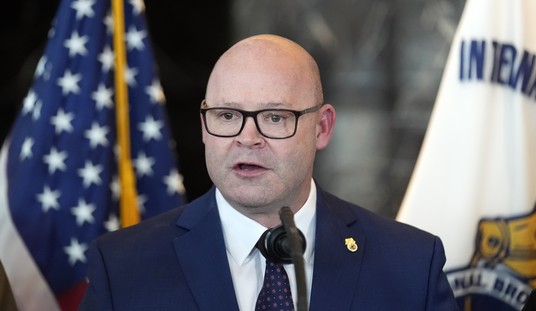
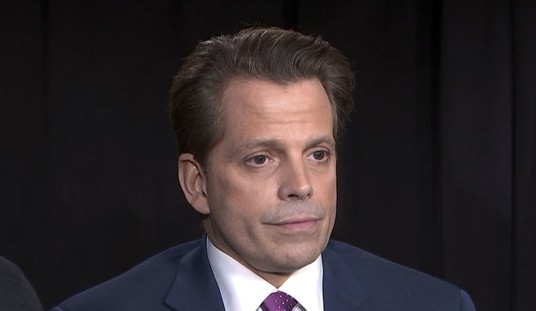


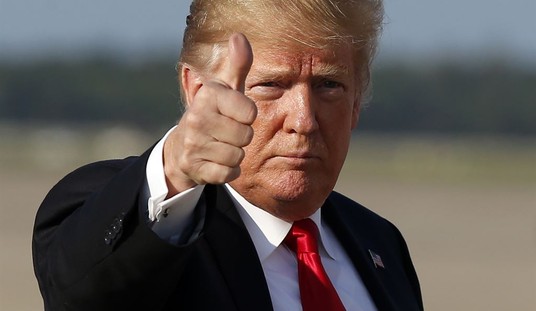
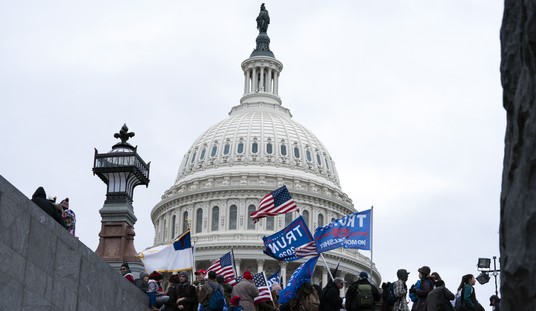

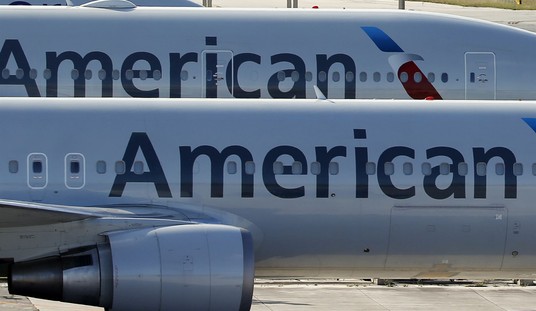



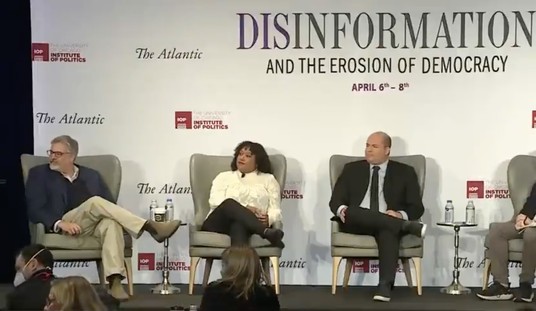

Join the conversation as a VIP Member